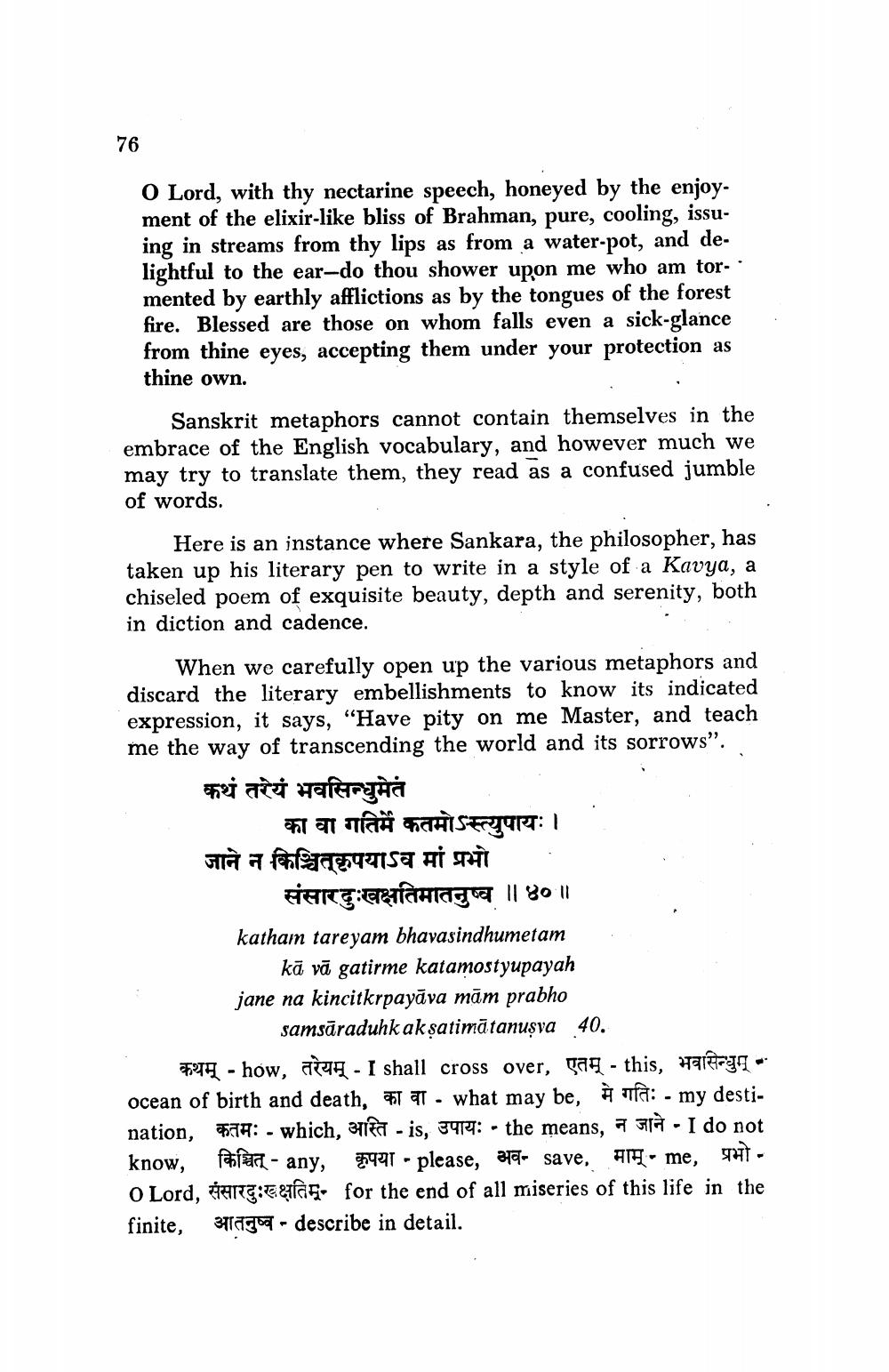________________
76
O Lord, with thy nectarine speech, honeyed by the enjoy. ment of the elixir-like bliss of Brahman, pure, cooling, issuing in streams from thy lips as from a water-pot, and delightful to the ear-do thou shower upon me who am tormented by earthly afflictions as by the tongues of the forest fire. Blessed are those on whom falls even a sick-glance from thine eyes, accepting them under your protection as thine own.
Sanskrit metaphors cannot contain themselves in the embrace of the English vocabulary, and however much we may try to translate them, they read as a confused jumble of words.
Here is an instance where Sankara, the philosopher, has taken up his literary pen to write in a style of a Kavya, a chiseled poem of exquisite beauty, depth and serenity, both in diction and cadence.
When we carefully open up the various metaphors and discard the literary embellishments to know its indicated expression, it says, "Have pity on me Master, and teach me the way of transcending the world and its sorrows".
कथं तरेयं भवसिन्धुमेतं
का वा गतिर्मे कतमोऽस्त्युपायः । जाने न किञ्चित्कृपयाऽव मां प्रभो
संसारदुःखक्षतिमातनुष्व ॥ ४० ॥ katham tareyam bhavasindhumetam
kā vā gatirme katamostyupayah jane na kincitkrpayāva mām prabho samsaraduhk akṣatimātanuṣva 40.
कथम् - how, तरेयम् - I shall cross over, एतम् this, भवसिन्धुम् • ocean of birth and death, का वा- what may be, मे गतिः - my desti - nation, कतमः - which, अस्ति - is, उपाय: - the means, न जाने - I do not किञ्चित् - any, know, प्रभो - कृपया - please, अव - save, मामू - me, O Lord, for the end of all miseries of this life in the finite, आतनुष्व - describe in detail.
:
-




